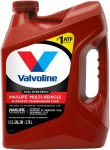
Valvoline MaxLife Multi-Vehicle ATF Full Review transaxle fluid – Oemiu
Valvoline MaxLife Multi-Vehicle ATF: A Comprehensive Review for Transmission Health
Choosing the right automatic transmission fluid (ATF) for your vehicle is a decision that can significantly impact its longevity and performance. With a multitude of options available, navigating the complexities of ATF specifications and compatibility can feel overwhelming. Valvoline MaxLife Multi-Vehicle ATF emerges as a popular choice, promising broad compatibility and enhanced protection for a wide range of vehicles. But does it live up to the hype? This comprehensive review delves deep into the formulation, performance, applications, and user experiences of Valvoline MaxLife Multi-Vehicle ATF to provide you with the information you need to make an informed decision. We’ll explore its key features, benefits, and potential drawbacks, helping you determine if it’s the right choice for your specific vehicle’s needs. Ultimately, the goal is to equip you with a thorough understanding of this fluid so you can confidently maintain your vehicle’s transmission.
Understanding the Importance of Choosing the Right ATF
The automatic transmission is a complex and vital component of your vehicle, responsible for seamlessly transferring power from the engine to the wheels. Unlike manual transmissions, which rely on driver-operated clutches and gears, automatic transmissions utilize a sophisticated system of hydraulics, gears, and clutches controlled by a valve body and, increasingly, electronic sensors and solenoids. This intricate system relies heavily on ATF to function correctly. ATF serves multiple crucial functions: it lubricates the internal components, cools the transmission by dissipating heat generated by friction, transmits hydraulic pressure to engage clutches and bands, and protects against wear, corrosion, and varnish buildup. Using the wrong ATF can lead to a cascade of problems, including harsh shifting, slipping gears, overheating, premature wear, and ultimately, complete transmission failure. Different vehicle manufacturers specify different ATF formulations based on the unique design and materials used in their transmissions. These specifications often include specific viscosity requirements, friction modifiers, and additive packages. Using a fluid that doesn’t meet the manufacturer’s specifications can compromise the transmission’s performance and lifespan, potentially voiding your vehicle’s warranty. Therefore, selecting the correct ATF is paramount to maintaining the health and performance of your automatic transmission, and considering a **multi-vehicle transaxle fluid** like Valvoline MaxLife can be a convenient option.
Valvoline MaxLife Multi-Vehicle ATF: Formulation and Key Features
Valvoline MaxLife Multi-Vehicle ATF is formulated with a blend of high-quality synthetic base oils and advanced additive technology. This combination is designed to provide superior protection and performance compared to conventional ATFs. The synthetic base oils offer enhanced thermal stability, oxidation resistance, and low-temperature fluidity, ensuring optimal performance across a wide range of operating temperatures. The additive package includes friction modifiers, detergents, dispersants, corrosion inhibitors, and anti-wear agents. These additives work synergistically to provide smooth shifting, prevent deposit formation, protect against wear and corrosion, and extend the life of the transmission. A key feature of MaxLife ATF is its seal conditioners, which are designed to revitalize and maintain the elasticity of transmission seals, helping to prevent leaks. This is particularly beneficial for older vehicles with higher mileage. Another significant aspect of the formulation is its enhanced friction durability. Over time, friction modifiers in ATF can degrade, leading to changes in shifting performance. MaxLife ATF is engineered to maintain its friction properties for an extended period, ensuring consistent shift quality throughout its service life. Valvoline claims that MaxLife Multi-Vehicle ATF is suitable for use in a wide range of vehicles, including those manufactured by GM, Ford, Toyota, Honda, Nissan, and many others. This broad compatibility makes it a convenient choice for vehicle owners who want a single fluid that can be used in multiple vehicles. The product is designed as a **full synthetic transaxle fluid** offering peak performance in a wide range of vehicles.
| Feature | Description |
|---|---|
| Synthetic Formulation | Provides superior thermal stability, oxidation resistance, and low-temperature fluidity. |
| Advanced Additive Technology | Includes friction modifiers, detergents, dispersants, corrosion inhibitors, and anti-wear agents. |
| Seal Conditioners | Revitalizes and maintains the elasticity of transmission seals. |
| Enhanced Friction Durability | Maintains friction properties for extended periods, ensuring consistent shift quality. |
| Broad Compatibility | Suitable for use in a wide range of vehicles, including those manufactured by GM, Ford, Toyota, Honda, and Nissan. |
Performance and Real-World Applications
The true test of any ATF lies in its performance under real-world driving conditions. Valvoline MaxLife Multi-Vehicle ATF has garnered positive reviews from many users who have reported improvements in shifting performance, reduced transmission noise, and overall smoother operation. Many users with older vehicles have noted that MaxLife ATF has helped to eliminate or reduce transmission slippage, particularly during cold starts or under heavy loads. The synthetic formulation and advanced additive package contribute to its ability to withstand high temperatures and maintain its viscosity over extended periods, making it well-suited for demanding driving conditions such as towing, hauling, or stop-and-go traffic. In applications where the original ATF specification is no longer readily available or cost-prohibitive, MaxLife ATF can be a viable alternative. However, it’s crucial to verify compatibility with your vehicle’s specific requirements before using it. While MaxLife ATF is designed to be a multi-vehicle fluid, there are certain applications where it may not be the best choice. For example, some highly specialized transmissions, such as those found in certain European vehicles, may require a fluid with a unique formulation that is not met by MaxLife ATF. It is always best to consult your vehicle’s owner’s manual or a trusted mechanic to determine the correct ATF specification for your particular application. Considering this is designed as a **premium multi vehicle transaxle fluid**, it is designed to exceed many OEM requirements.
Benefits of Using Valvoline MaxLife Multi-Vehicle ATF
Choosing Valvoline MaxLife Multi-Vehicle ATF can offer several potential benefits compared to using a conventional ATF or a fluid that doesn’t meet your vehicle’s specifications.
* **Improved Shifting Performance:** The advanced friction modifiers in MaxLife ATF help to ensure smooth and consistent shifting, reducing harshness and improving overall driving comfort.
* **Extended Transmission Life:** The synthetic formulation and robust additive package provide enhanced protection against wear, corrosion, and deposit formation, helping to extend the life of your transmission.
* **Reduced Transmission Noise:** MaxLife ATF can help to reduce transmission noise by providing better lubrication and cushioning between moving parts.
* **Enhanced Thermal Stability:** The synthetic base oils offer superior thermal stability, preventing the fluid from breaking down at high temperatures and maintaining its viscosity over extended periods.
* **Seal Compatibility:** The seal conditioners in MaxLife ATF help to revitalize and maintain the elasticity of transmission seals, preventing leaks and reducing the risk of costly repairs.
* **Broad Compatibility:** MaxLife ATF is suitable for use in a wide range of vehicles, making it a convenient choice for vehicle owners with multiple vehicles.
* **Cost-Effectiveness:** While MaxLife ATF may be more expensive than some conventional ATFs, its enhanced performance and extended service life can potentially save you money in the long run by reducing the risk of transmission problems.
These benefits make Valvoline MaxLife a strong contender for those seeking a reliable and versatile **synthetic multi vehicle transaxle fluid**.
Potential Drawbacks and Considerations
While Valvoline MaxLife Multi-Vehicle ATF offers numerous benefits, it’s important to be aware of potential drawbacks and considerations before making a decision. One of the primary concerns is its “multi-vehicle” nature. While convenient, this broad compatibility means that it’s not specifically optimized for any particular transmission. Some purists argue that using a fluid specifically formulated for their vehicle’s transmission will always provide the best possible performance and protection. Another consideration is the potential for compatibility issues with certain specialized transmissions. As mentioned earlier, some European vehicles and other vehicles with unique transmission designs may require a fluid with a highly specific formulation that is not met by MaxLife ATF. It’s also important to note that while MaxLife ATF contains seal conditioners, it may not be able to completely fix existing leaks. If your transmission is already leaking significantly, you may need to address the underlying issue before switching to MaxLife ATF. Some users have also reported that MaxLife ATF can sometimes cause a slight change in shifting feel, particularly in older vehicles. While this change is not always negative, it’s something to be aware of. Before switching to MaxLife ATF, it’s always a good idea to consult your vehicle’s owner’s manual and research any potential compatibility issues. If you’re unsure, it’s best to consult a trusted mechanic who can provide specific recommendations based on your vehicle’s needs. Ultimately, determining the appropriate **synthetic universal transaxle fluid** is best done with professional support.
User Reviews and Testimonials
User reviews and testimonials provide valuable insights into the real-world performance of Valvoline MaxLife Multi-Vehicle ATF. A large number of users have reported positive experiences, noting improvements in shifting smoothness, reduced transmission noise, and overall enhanced performance. Many users with older vehicles have praised MaxLife ATF for its ability to revitalize their transmissions and eliminate or reduce slippage. Some users have reported that MaxLife ATF has helped to fix minor transmission problems, such as rough shifting or hesitation. However, it’s important to note that MaxLife ATF is not a miracle cure and may not be able to fix all transmission problems. Some users have reported that MaxLife ATF did not provide any noticeable improvement in their transmission’s performance. In some cases, users have even reported that MaxLife ATF caused a slight change in shifting feel, although this change was not always negative. It’s important to remember that user experiences can vary depending on the specific vehicle, transmission condition, and driving habits. Reading a variety of reviews and considering the source of the information can help you get a more balanced perspective.
Alternatives to Valvoline MaxLife Multi-Vehicle ATF
While Valvoline MaxLife Multi-Vehicle ATF is a popular and versatile option, it’s not the only choice available. Several other ATFs offer similar features and benefits, and it’s worth considering these alternatives before making a decision. One popular alternative is AMSOIL Synthetic Multi-Vehicle Automatic Transmission Fluid. AMSOIL is known for its high-quality synthetic lubricants, and its Multi-Vehicle ATF is designed to provide superior protection and performance in a wide range of vehicles. Another option is Mobil 1 Synthetic LV ATF. Mobil 1 is another well-respected brand in the lubricant industry, and its Synthetic LV ATF is formulated to meet the demanding requirements of modern automatic transmissions. Red Line Synthetic ATF is also a popular choice among performance enthusiasts. Red Line ATFs are known for their exceptional thermal stability and wear protection, making them well-suited for demanding driving conditions. In addition to these multi-vehicle ATFs, it’s also possible to use a fluid specifically formulated for your vehicle’s transmission. These fluids are typically available from the vehicle manufacturer or from aftermarket suppliers. While they may be more expensive, they are often considered to be the best choice for optimal performance and protection. Ultimately, the best ATF for your vehicle will depend on your specific needs and preferences. It’s important to research the available options and choose a fluid that meets your vehicle’s specifications and your driving requirements. Considering this variety when selecting a **compatible multi vehicle transaxle fluid** can improve performance and lifespan.
Frequently Asked Questions (FAQ)
What is Valvoline MaxLife Multi-Vehicle ATF and what makes it different?
Valvoline MaxLife Multi-Vehicle ATF is a synthetic automatic transmission fluid designed for a broad range of vehicles, offering enhanced protection and performance compared to conventional ATFs. Its key differentiators lie in its advanced formulation, which includes a blend of high-quality synthetic base oils and a sophisticated additive package. This combination provides superior thermal stability, oxidation resistance, and low-temperature fluidity, ensuring optimal performance across a wide range of operating temperatures. The additive package contains friction modifiers, detergents, dispersants, corrosion inhibitors, and anti-wear agents, all working together to promote smooth shifting, prevent deposit formation, and protect against wear and corrosion. Additionally, MaxLife ATF incorporates seal conditioners to revitalize and maintain the elasticity of transmission seals, a feature particularly beneficial for older, higher-mileage vehicles. Its broad compatibility also distinguishes it, making it a convenient choice for owners of multiple vehicles with diverse ATF requirements.
Is Valvoline MaxLife Multi-Vehicle ATF compatible with my vehicle? How can I check?
Determining compatibility is crucial before using Valvoline MaxLife Multi-Vehicle ATF. While it’s designed for a wide range of vehicles, it’s not universally compatible. The primary resource for checking compatibility is your vehicle’s owner’s manual. This manual specifies the exact ATF type recommended by the manufacturer. You can also consult the Valvoline website or product documentation, which typically includes a compatibility chart listing specific vehicle makes and models. Another reliable method is to consult a trusted mechanic or automotive specialist. They can assess your vehicle’s transmission and advise on the appropriate ATF. If your vehicle’s manufacturer has a technical service bulletin for fluids, that will contain updated information. Carefully comparing the specifications and requirements outlined in your owner’s manual with the specifications of Valvoline MaxLife Multi-Vehicle ATF is essential to ensuring compatibility and avoiding potential transmission problems.
What are the potential benefits of switching to Valvoline MaxLife Multi-Vehicle ATF?
Switching to Valvoline MaxLife Multi-Vehicle ATF can offer several benefits, particularly for older or higher-mileage vehicles. The synthetic formulation provides superior protection against wear, corrosion, and deposit formation, which can extend the life of your transmission. The advanced additive package helps to improve shifting performance, reducing harshness and promoting smoother operation. The seal conditioners can revitalize transmission seals, preventing leaks and reducing the risk of costly repairs. MaxLife ATF also offers enhanced thermal stability, preventing the fluid from breaking down at high temperatures and maintaining its viscosity over extended periods. This is especially beneficial for vehicles that are used for towing, hauling, or in stop-and-go traffic. Finally, its broad compatibility makes it a convenient choice for vehicle owners who want a single fluid that can be used in multiple vehicles.
Are there any risks or downsides to using Valvoline MaxLife Multi-Vehicle ATF?
While Valvoline MaxLife Multi-Vehicle ATF offers numerous benefits, there are some potential risks and downsides to consider. The “multi-vehicle” nature of the fluid means that it’s not specifically optimized for any particular transmission. While it meets or exceeds the requirements of many OEM specifications, some purists argue that using a fluid specifically formulated for their vehicle’s transmission will always provide the best possible performance and protection. There’s also the potential for compatibility issues with certain specialized transmissions. Although rare, some vehicles require unique fluids. While MaxLife contains seal conditioners, it may not completely fix existing leaks. It is also wise to consult with a professional before switching.
How often should I change Valvoline MaxLife Multi-Vehicle ATF?
The recommended change interval for Valvoline MaxLife Multi-Vehicle ATF depends on several factors, including your vehicle’s manufacturer’s recommendations, your driving habits, and the operating conditions. As a general guideline, it’s often recommended to change ATF every 30,000 to 60,000 miles under normal driving conditions. However, if you frequently tow, haul heavy loads, or drive in stop-and-go traffic, you may need to change the fluid more frequently, perhaps every 20,000 to 30,000 miles. Always consult your vehicle’s owner’s manual for the manufacturer’s recommended service intervals. Some manufacturers may specify longer intervals for synthetic ATFs. It’s also important to inspect the ATF regularly for signs of contamination, such as a dark color or a burnt smell. If the fluid appears to be contaminated, it should be changed immediately, regardless of the mileage interval.
Can I mix Valvoline MaxLife Multi-Vehicle ATF with other ATF types?
While it’s generally not recommended to mix different types of ATF, Valvoline MaxLife Multi-Vehicle ATF is designed to be compatible with most conventional ATFs. However, mixing different fluids can potentially dilute the additive package and reduce the overall performance of the fluid. If you’re switching to MaxLife ATF from a conventional ATF, it’s best to perform a complete fluid flush to remove as much of the old fluid as possible. If you’re only topping off the fluid level, it’s generally safe to mix MaxLife ATF with a small amount of the existing fluid. However, it’s always best to consult your vehicle’s owner’s manual or a trusted mechanic for specific recommendations.
Is Valvoline MaxLife Multi-Vehicle ATF suitable for high-performance or racing applications?
What are the alternatives if it is not?
While Valvoline MaxLife Multi-Vehicle ATF offers enhanced protection and performance compared to conventional ATFs, it may not be the best choice for high-performance or racing applications. High-performance and racing transmissions often experience extreme temperatures, pressures, and loads, which can require a more specialized ATF with enhanced thermal stability, wear protection, and friction characteristics. For these applications, it’s recommended to use a dedicated racing or high-performance ATF, such as those offered by Red Line, AMSOIL, or Motul. These fluids are specifically formulated to withstand the demanding conditions of racing and high-performance driving, providing superior protection and performance. They typically feature higher viscosity indices, enhanced friction modifiers, and robust additive packages to ensure optimal performance and longevity. Always consult with a transmission specialist or performance expert to determine the best ATF for your specific application.
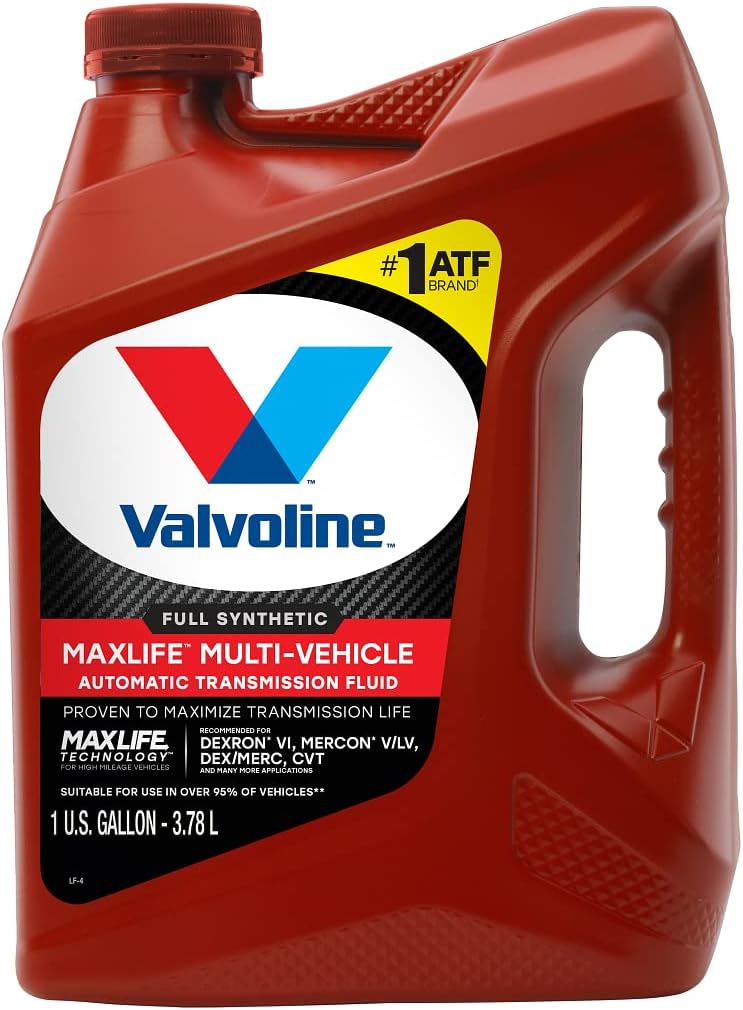
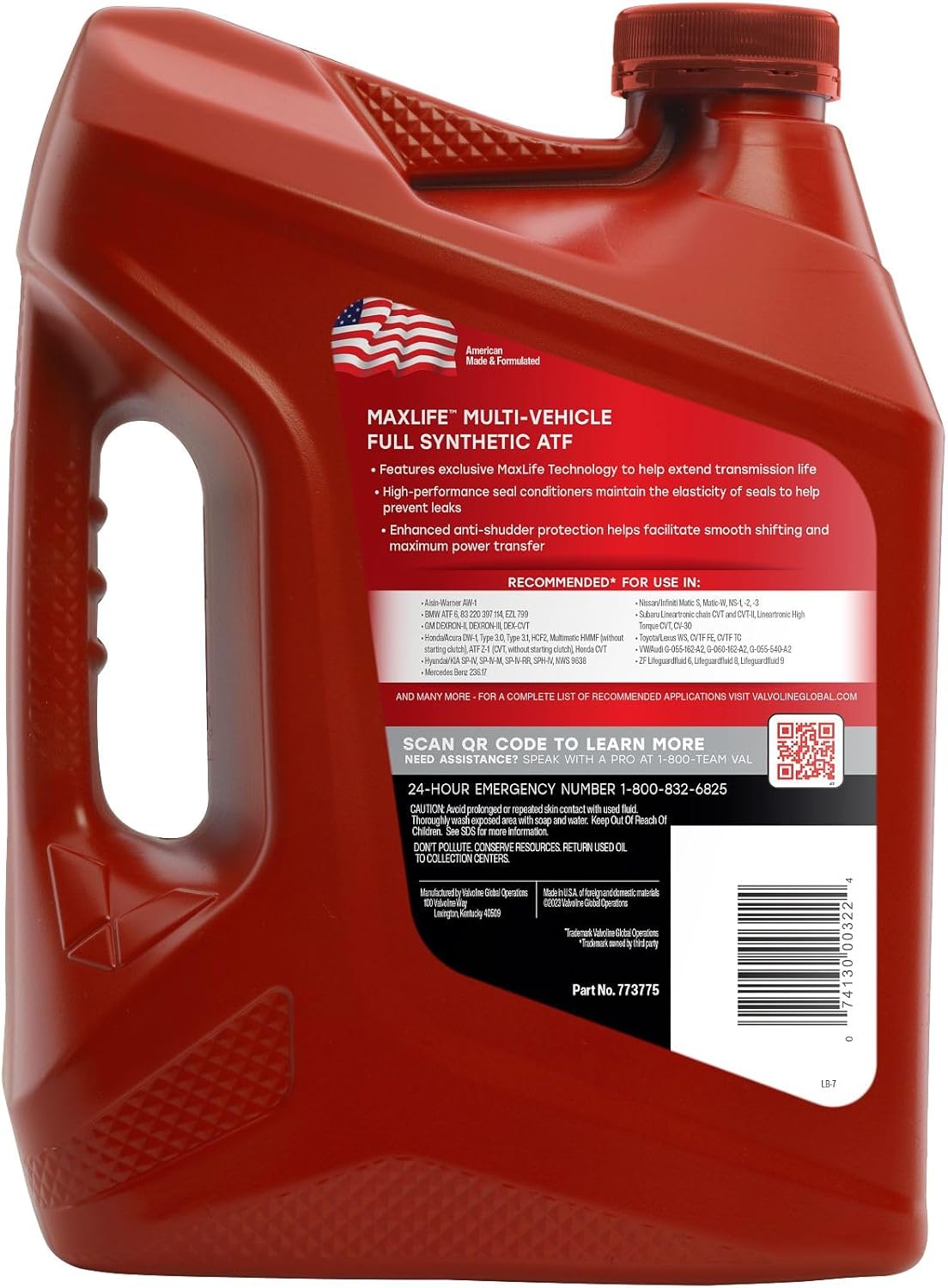
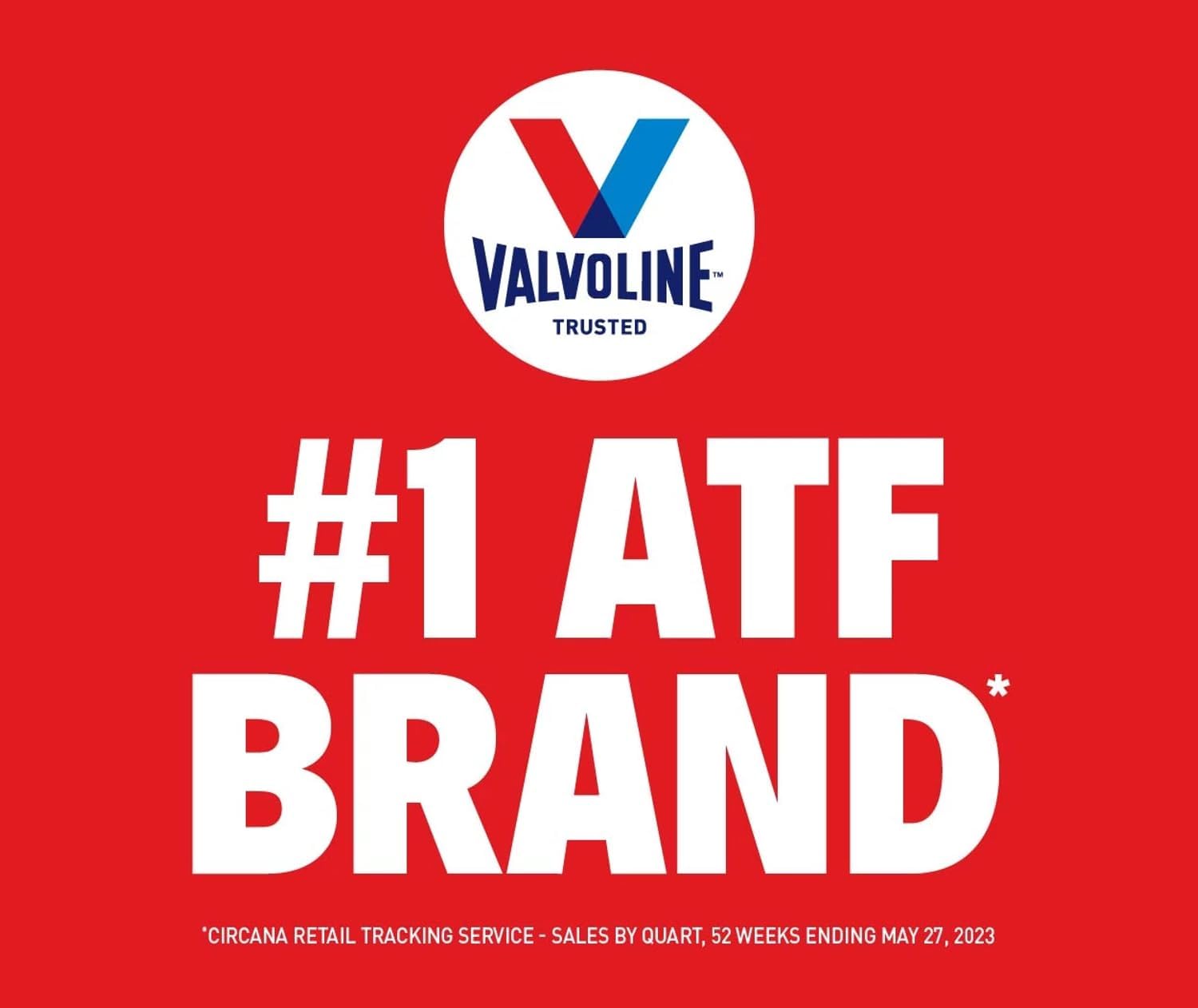
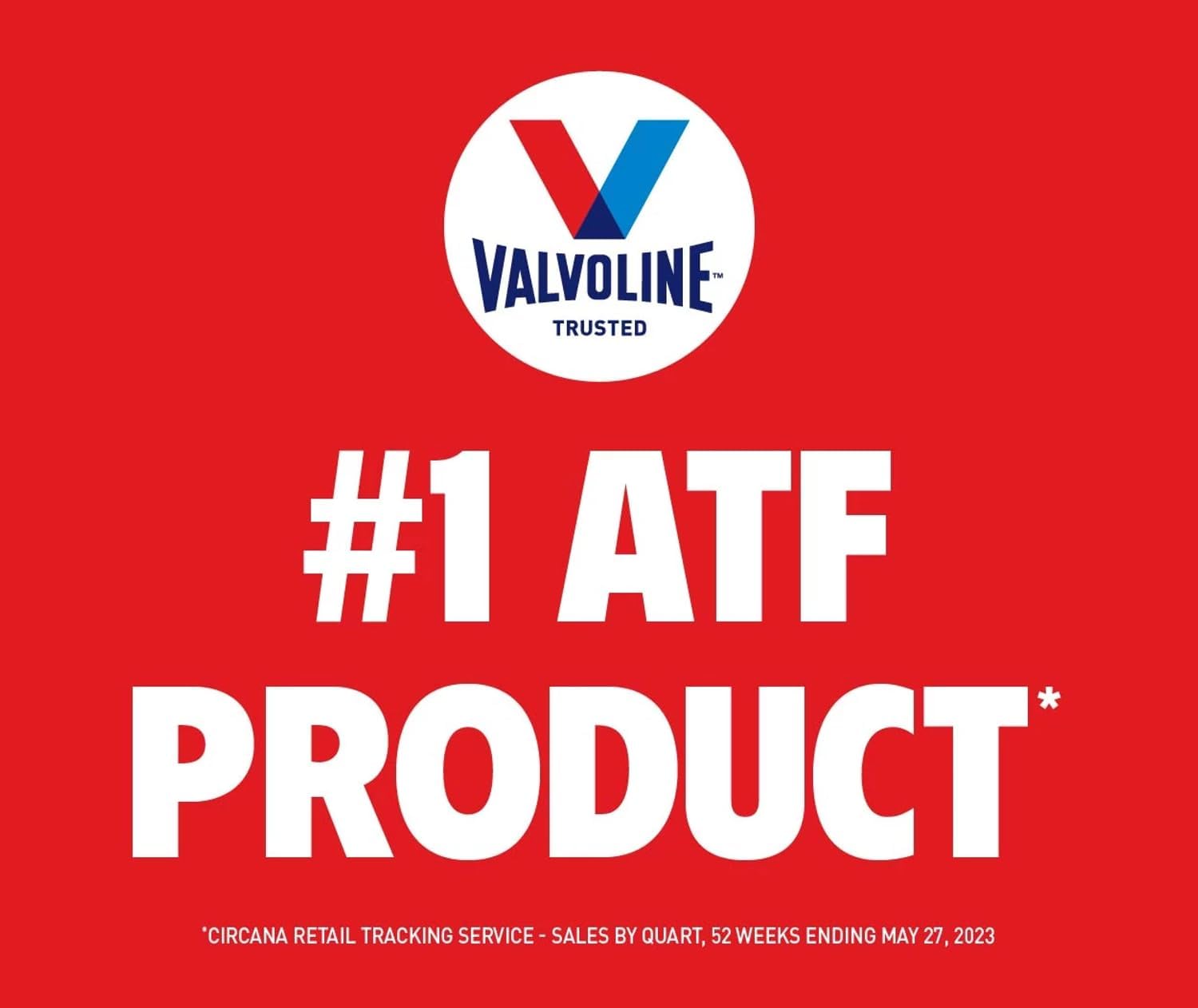


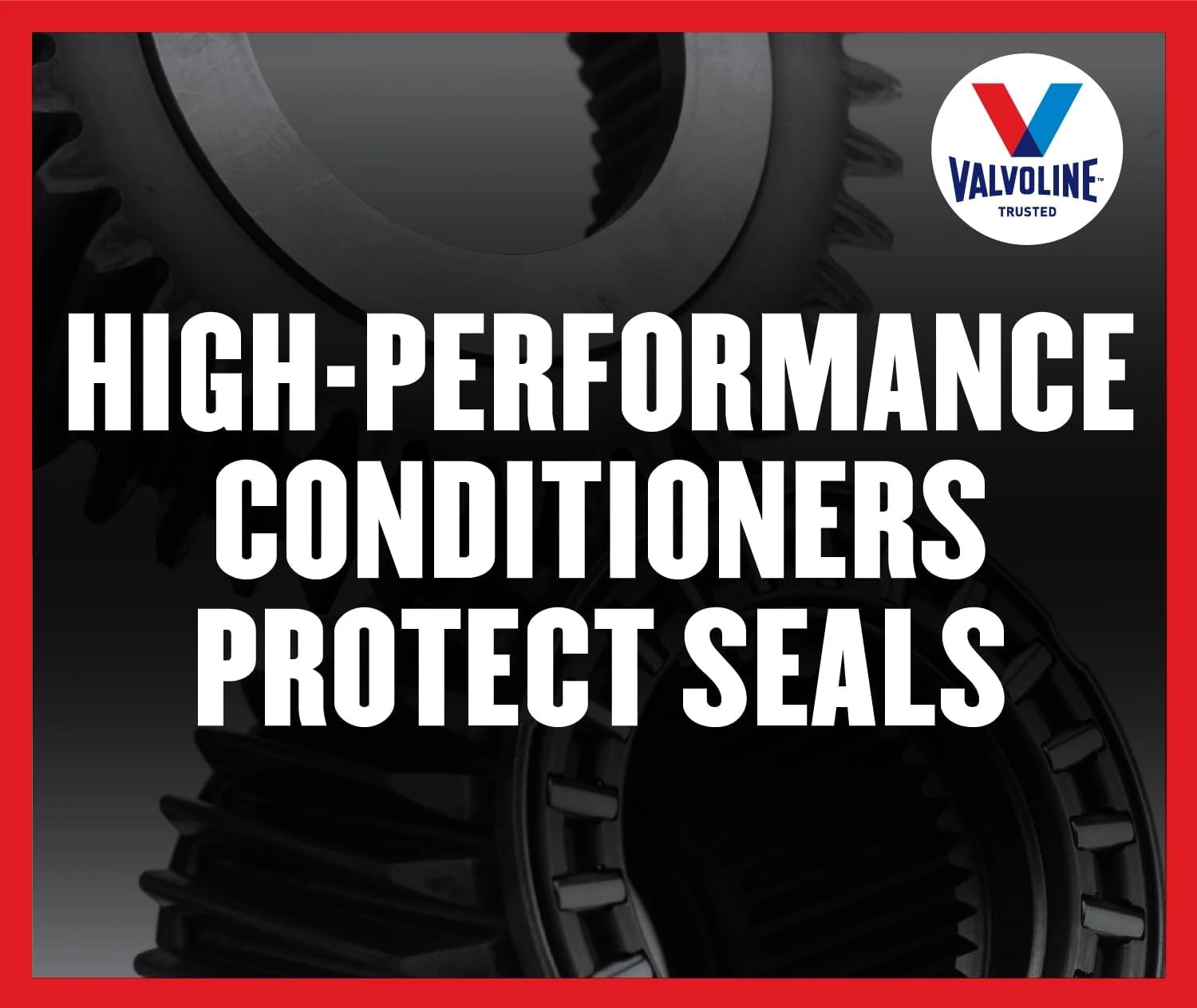
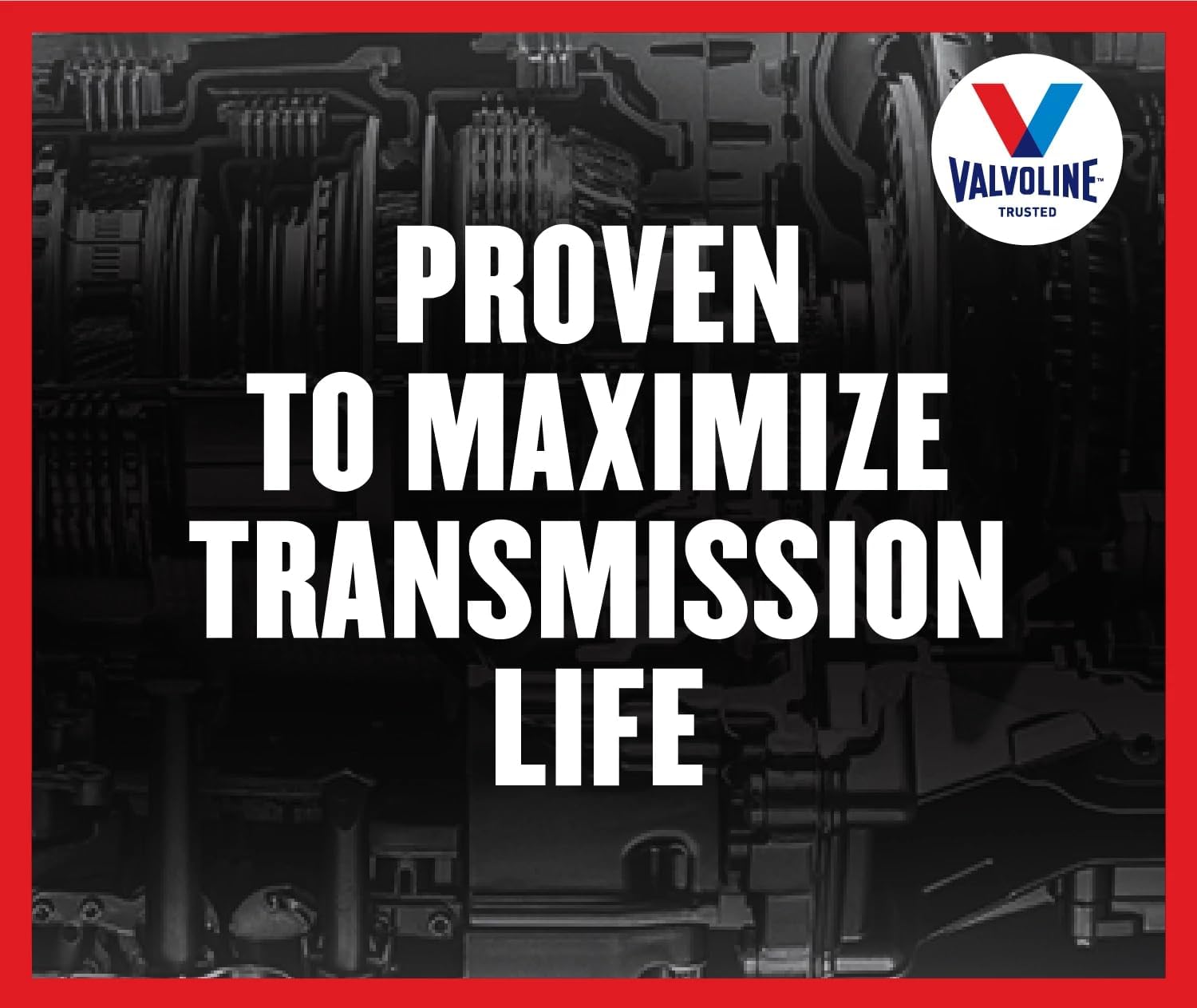
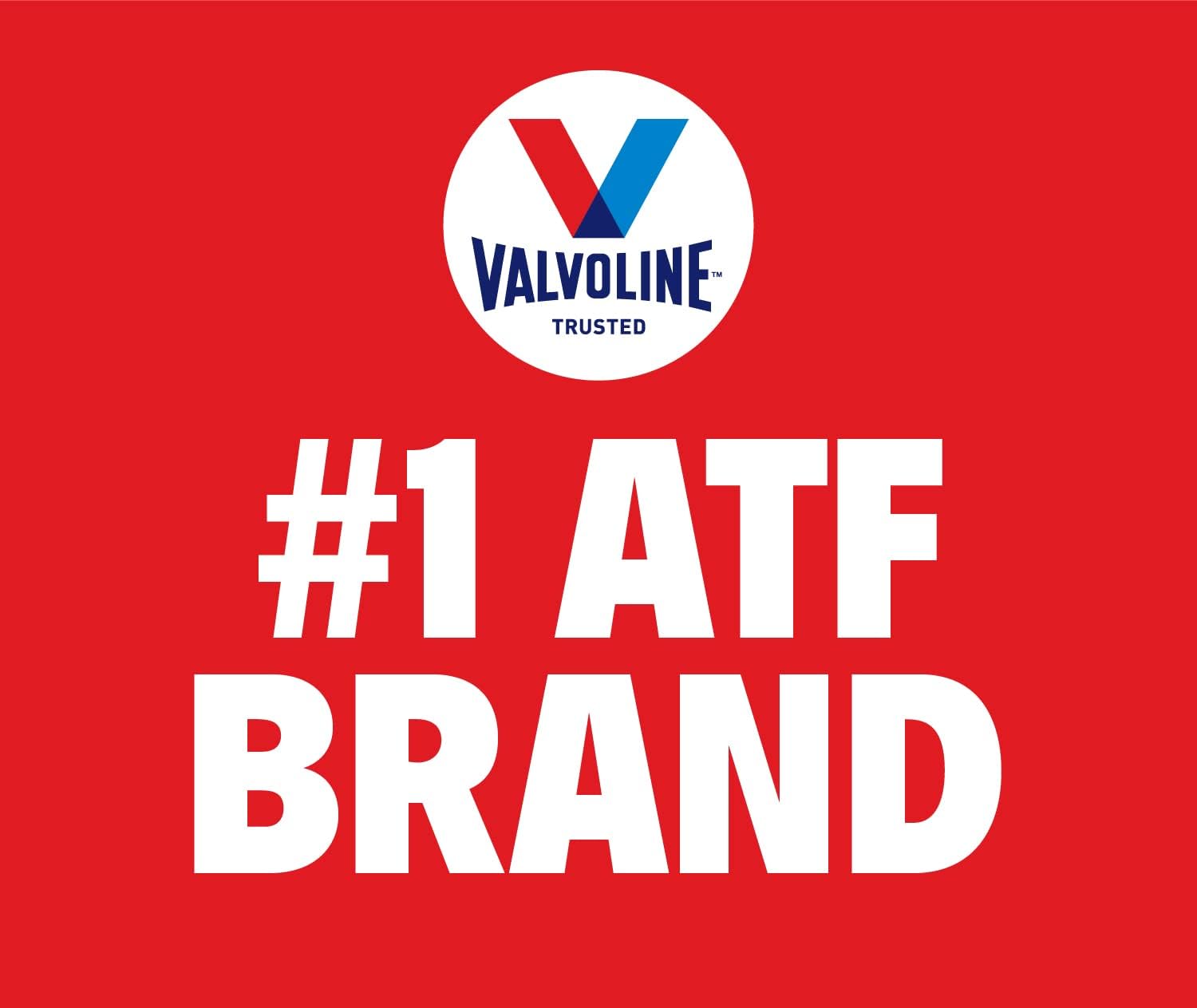
Price: $31.49 - $25.92
(as of Sep 05, 2025 07:19:33 UTC – Details)




